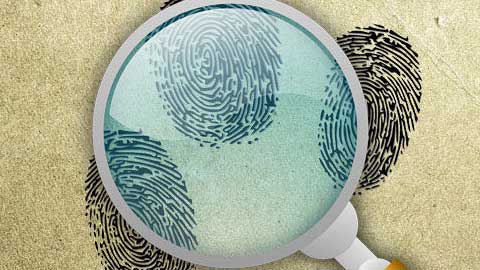Forensic toxicology is a branch of forensic science that deals with the identification and analysis of drugs and other toxic substances in biological samples like blood, urine, and hair.
It is a crucial tool in criminal investigations and is often used to determine the cause of death or illness in cases involving drug overdoses, poisoning, or other toxic exposures.
In this blog, we will explore the science behind forensic toxicology and how it is used to solve crimes.

Collecting Biological Samples
The first step in forensic toxicology is collecting the biological samples that will be analyzed. These samples can include blood, urine, saliva, hair, and even fingernails. The sample collection must be done in a way that preserves the integrity of the sample and prevents contamination.
For example, if blood is being collected, the person collecting the sample must use a sterile needle and syringe to avoid contaminating the sample with bacteria or other substances that could interfere with the analysis.
Analyzing the Samples
Once the biological samples have been collected, they are sent to a laboratory for analysis. Forensic toxicologists use a range of techniques to identify and quantify drugs and other toxic substances in these samples.
One of the most common techniques used is gas chromatography-mass spectrometry (GC-MS), which separates the different components of a sample and then identifies them based on their mass and other properties.
In simple terms, GC-MS involves heating a sample and then passing it through a long, thin column that contains a stationary phase.
The different components of the sample interact with the stationary phase differently and separate out as they pass through the column. The separated components are then detected by a mass spectrometer, which identifies them based on their mass-to-charge ratio.
Interpreting the Results
Once the samples have been analyzed, the forensic toxicologist must interpret the results. This involves comparing the levels of drugs and other toxic substances found in the sample to established reference ranges or thresholds.
For example, if a blood sample contains high levels of opioids, the toxicologist may conclude that the person died of an opioid overdose. It is important to note that the interpretation of forensic toxicology results is not always straightforward.
There are many factors that can influence the levels of drugs and other toxic substances in a biological sample, including the person’s metabolism, the type and amount of drug or toxic substance ingested, and the time between ingestion and sample collection.
Forensic toxicologists must take all of these factors into account when interpreting their results and providing conclusions.
Limitations of Forensic Toxicology
While forensic toxicology is a powerful tool in criminal investigations, it is not without its limitations. One major limitation is the fact that many drugs and other toxic substances are metabolized quickly by the body, making them difficult to detect in biological samples.
For example, cocaine is metabolized rapidly, and its metabolites can be difficult to detect in urine samples collected more than a few days after use.
Another limitation is the fact that some drugs and other toxic substances can be found in biological samples even when they were not the cause of death or illness.
For example, if a person dies from a heart attack and has high levels of a prescription drug in their system, it may be difficult to determine whether the drug contributed to the person’s death or was simply present due to the person’s medical history.
Conclusion
Forensic toxicology is a critical tool in criminal investigations, allowing forensic scientists to identify and quantify drugs and other toxic substances in biological samples.
However, it is important to recognize the limitations of this technique and to use the results in conjunction with other evidence to draw conclusions about the cause of death or illness.
By using a range of scientific techniques and approaches, forensic toxicologists play a vital role in the justice system and help ensure that justice is served.
